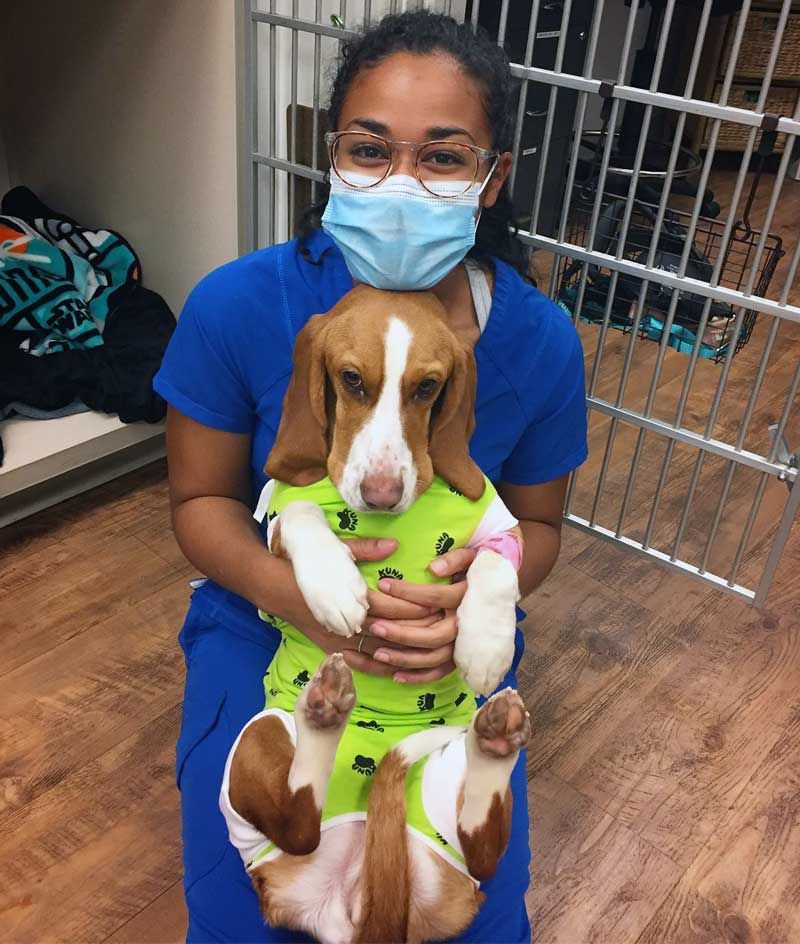Shelter dogs are not broken. They’re just misunderstood.
Some people see them as damaged goods, ticking time bombs, or leftovers no one wanted. That’s nonsense. Shelter dogs are full of heart, loyalty, and second chances just waiting to happen.
They’ve been mislabeled, misjudged, and overlooked for all the wrong reasons. “They all have issues.” “They’re dangerous.” “They can’t be trained.” Lies, all of it—born from fear, not fact.
Behind those shelter bars are goofy grins, tail wags, and souls that crave connection.
And when you bust through the myths?
You meet some of the best dogs on the planet.
Let’s tear down the tall tales and meet the real dogs who deserve a shot at forever.
Myth 1: All Shelter Dogs Are Old

Many people believe that shelter dogs are all older animals, left behind as they age. However, shelters are home to dogs of all ages, including puppies and young adults. Young dogs often find themselves in shelters due to unforeseen circumstances, not age-related issues.
Puppies and adolescents are just as common in shelters as older dogs, waiting to grow up with a loving family. Age diversity in shelters means you can find the perfect match, whether you’re looking for a playful pup or a more settled companion.
Young shelter dogs provide the opportunity to shape their behavior and habits from an early age.
Myth 2: Shelter Dogs Are Unhealthy

Contrary to popular belief, shelter dogs are often healthier than assumed. Shelters typically provide veterinary care, vaccinations, and necessary medical treatments to ensure dogs are in good health for adoption.
Many dogs enter shelters after being well cared for by previous owners, having regular vet check-ups and a history of good health.
Adopting a shelter dog means acquiring a pet that has been health-screened, spayed or neutered, and is ready to join a new family. Shelters prioritize health to give each dog a fresh start.
Myth 3: Shelter Dogs Have Behavioral Issues

Some believe that shelter dogs have behavioral problems that make them difficult pets. In reality, many shelter dogs have no behavioral issues and are well-adjusted companions.
Behavioral assessments are conducted by shelters to understand each dog’s personality and needs. Many dogs are there due to family changes or other non-behavioral reasons, not because they are ‘bad’ dogs.
Training and socialization programs offered by shelters further enhance the behavior of these dogs, making them suitable for family life and companionship.
Myth 4: Shelter Dogs Come From Bad Backgrounds

The assumption that shelter dogs have all experienced neglect or abuse is misleading. Dogs enter shelters for various reasons, such as family relocation, financial difficulties, or owner allergies.
These circumstances have no bearing on the dog’s inherent nature or ability to bond with a new family.
Many shelter dogs have experienced loving homes and simply need a second chance. Shelters work to provide a stable environment where dogs can thrive until a new family adopts them. Their backgrounds are as diverse as their personalities.
Myth 5: Shelter Dogs Are Not Purebred

A common myth is that shelters only have mixed-breed dogs, but they also house many purebred animals. Purebreds end up in shelters due to various reasons, such as changes in owner circumstances or lifestyle.
Rescue organizations and breed-specific shelters often collaborate, offering purebred dogs for adoption. This means potential adopters have access to a wide variety of breeds, both mixed and pure.
Whether you’re looking for a specific breed or a mix, shelters can be a treasure trove of canine diversity, offering a chance to adopt a purebred with known characteristics.
Myth 6: Shelter Dogs Are Aggressive

There’s a misconception that shelter dogs are aggressive, but this is rarely true. Dogs may be surrendered for various reasons unrelated to aggression, such as family dynamics or moving.
Shelters conduct behavior assessments and provide training to ensure dogs are adoptable and well-mannered.
Most shelter dogs are friendly and eager to please, often showing gratitude and affection towards their new families. With proper training and love, shelter dogs make loyal and gentle companions, proving that aggression is not a common trait among them.
Myth 7: Shelter Dogs Aren’t Trainable

Many believe that shelter dogs are untrainable, but this couldn’t be further from the truth. Dogs in shelters are often eager to learn and respond well to training.
Shelters and rescues often offer training programs and resources to adopters, showing that these dogs are capable of learning commands and new behaviors.
Training a shelter dog can be a rewarding experience, as they are often motivated by positive reinforcement and eager to bond with their handlers. Their adaptability and intelligence can surprise even seasoned dog owners.
Myth 8: Shelter Dogs Are Temporary

The idea that adopting a shelter dog is a temporary solution is unfounded. Many dogs find permanent, loving homes through adoption, forming lifelong bonds with their new families.
Shelters work tirelessly to match dogs with the right owners, considering lifestyle, environment, and personality to ensure a good fit.
Once adopted, these dogs often become integral parts of their families, offering companionship and loyalty over many years. The permanence of adoption is emphasized by shelters, who aim for successful, enduring matches.
Myth 9: Shelter Dogs Are Damaged Goods

The notion that shelter dogs are ‘damaged goods’ is a myth that discredits their potential. Many enter shelters through no fault of their own, often coming from loving homes.
These dogs are resilient and capable of forming strong, positive relationships with new owners. Their past does not define them, as they are often eager to start anew.
The ‘damaged goods’ stereotype overlooks the joy and unconditional love these dogs have to offer. Their ability to thrive in new environments is a testament to their spirit and adaptability.
Myth 10: Shelter Dogs Can’t Form Bonds

It’s a myth that shelter dogs are unable to form strong bonds with new owners. Once these dogs find a loving home, they often show immense loyalty and gratitude.
Shelters provide environments where dogs can learn to trust humans again, and adopters often find that shelter dogs form deep attachments.
The bond between a shelter dog and its owner can be incredibly strong, filled with love and mutual respect. The joy of seeing a once-sheltered dog thrive in a family setting is a reward in itself, proving that bonds are not only possible but profound.
Myth 11: Shelter Dogs Are Second-Rate

Shelter dogs are often seen as second-rate compared to pets obtained from breeders or pet shops. Yet, many shelter dogs possess the same qualities that make excellent pets.
They can excel in obedience, agility, and even therapy work, proving their worth and capability.
Adopting a shelter dog means giving a deserving animal a chance to shine, and often they exceed expectations. Their potential for excellence is no less than any other dog, and with love and training, they can achieve great things.
Myth 12: Shelter Dogs Don’t Live Long

The myth that shelter dogs don’t live long is unfounded. With proper care, shelter dogs can live healthy, full lives comparable to any other pet.
Adopting a shelter dog often means gaining a companion with years of love and activity ahead. Shelters provide necessary healthcare and support to ensure longevity.
Many adopters find that their shelter dogs live long, happy lives, filled with adventures and cherished moments. Longevity is not exclusive to any particular source, and shelter dogs prove this every day with their enduring presence.
Myth 13: Shelter Dogs Can’t Be Family Pets

The belief that shelter dogs can’t become family pets is misleading. Many shelter dogs thrive in family environments, providing love, loyalty, and joy to all members.
Shelters assess dogs to ensure they are suitable for family life, often finding that these dogs become integral members of their new homes.
Their ability to adapt and bond makes them perfect candidates for families looking for a pet. Shelter dogs have the potential to bring families closer together, creating unforgettable memories and lasting bonds.
Myth 14: Shelter Dogs Aren’t Playful

It’s a misconception that shelter dogs lack playfulness. Many are full of energy and love to engage in playful activities.
Shelters often have play areas where dogs can express their playful nature, helping potential adopters see their lively side.
Adopting a shelter dog means gaining a companion who enjoys playtime as much as any other dog, offering endless fun and excitement. Their playful spirit can be infectious, bringing joy and laughter to their new homes.
Myth 15: Shelter Dogs Are Unpredictable

Some think shelter dogs are unpredictable, but many have stable, predictable personalities. Shelters conduct assessments to understand each dog’s behavior, ensuring adopters are aware of any special needs.
These dogs often display steady behavior and adapt well to routines, providing comfort and stability to their new families.
Adopting a shelter dog means welcoming a pet whose personality has been carefully evaluated, making unpredictability a myth. With the right care, these dogs can offer consistent companionship.
Myth 16: Shelter Dogs Are Hard to Find

The belief that shelter dogs are hard to find is inaccurate. Animal shelters and rescues are located in almost every community, offering a wide range of dogs ready for adoption.
Many shelters have online adoption platforms, making it easier than ever to find a dog that fits your lifestyle and preferences.
With so many shelters and resources available, finding a shelter dog is more accessible than ever, bringing hope and companionship to many homes.
Myth 17: Shelter Dogs Are More Expensive

Adopting a shelter dog is often more affordable than purchasing from breeders or pet shops. Shelters typically cover initial veterinary expenses, vaccinations, and spaying or neutering.
These costs are included in the adoption fee, making it cost-effective for families looking to add a pet.
The value of adopting a shelter dog extends beyond financial savings, offering companionship and love without breaking the bank. Affordable adoption rates dispel the myth of shelter dogs being expensive, proving they are a wise choice for many.
Myth 18: Shelter Dogs Aren’t Grateful

The idea that shelter dogs lack gratitude is far from true. Many adopters find their shelter dogs to be incredibly appreciative of their new homes.
These dogs often show affection and loyalty, forming deep bonds with their families. Their gratitude manifests in tail wags, snuggles, and a constant desire to be near their beloved humans.
Adopting a shelter dog means experiencing a unique form of appreciation, as these dogs often show endless love for the second chance they’ve been given.

